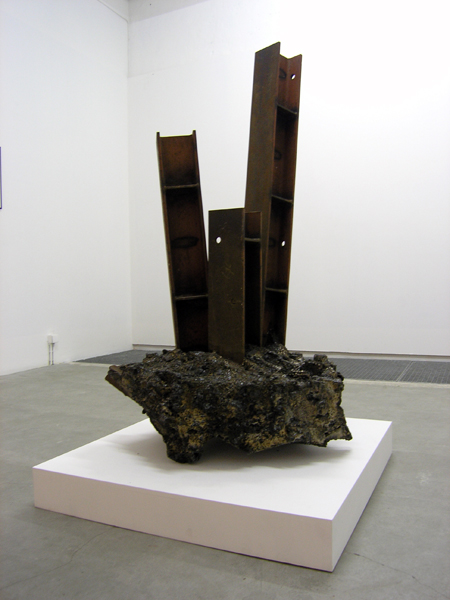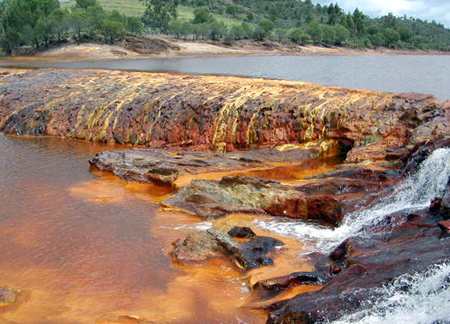Ore Genesis
november 18th, 2006Maarten Vanden Eynde
Genetologic Research Nr. 25: Ore Crystal, 2006
60cm x 80cm x 160cm

An ore is a volume of rock containing components or minerals in a mode of occurrence which renders it valuable for mining.
Rare samples of ore in the form of exceptionally beautiful crystals, exotic layering (when sectioned or polished) or metallic presentations such as large nuggets or chrystaline formations of metals such as gold or copper may command a value far beyond their value as mere ore or raw metal for subsequent reduction to utilitarian purposes.The grade or contained concentration of an ore mineral, or metal, as well as its form of occurrence, will directly affect the costs associated with mining the ore. The cost of extraction must thus be weighted against the contained metal value of the rock and a ‘cut-off grade’ used to define what is ore and what is waste.
Ore minerals are generally oxides, sulfides, silicates, or “native” metals (such as copper) that are not commonly concentrated in the Earth’s crust or “noble” metals (not usually forming compounds) such as gold. The ores must be processed to extract the metals of interest from the waste rock and from the ore minerals.
Ore bodies are formed by a variety of geological processes. The process of ore formation is called ore genesis.

The various theories of ore genesis explain how the various types of mineral deposits form within the Earth’s crust. Ore genesis theories generally involve three components: source, transport or conduit, and trap. This also applies to the petroleum industry, which was first to use this methodology.
Source is required because metal must come from somewhere, and be liberated by some process.
Transport is required first to move the metal bearing fluids or solid minerals into the right position, and refers to the act of physically moving the metal, as well as chemical or physical phenomenon which encourage movement.
Trapping is required to concentrate the metal via some physical, chemical or geological mechanism into a concentration which forms mineable ore.
The biggest deposits are formed when the source is large, the transport mechanism is efficient, and the trap is active and ready at the right time.